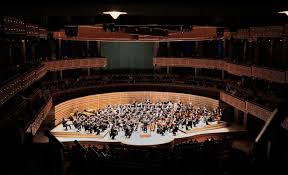 The world is becoming increasingly saturated with information, but arguably less thoughtful. That was the topic of a recent opinion piece in the New York Times. In Hit the Reset Button in Your Brain, Daniel J. Levitin writes about the increasing amount of information our brains are trying to process through e mails, tweets, Facebook and other technology. All of this crowds out daydreaming, which he cites as the true source of creativity:
The world is becoming increasingly saturated with information, but arguably less thoughtful. That was the topic of a recent opinion piece in the New York Times. In Hit the Reset Button in Your Brain, Daniel J. Levitin writes about the increasing amount of information our brains are trying to process through e mails, tweets, Facebook and other technology. All of this crowds out daydreaming, which he cites as the true source of creativity:
Daydreaming leads to creativity, and creative activities teach us agency, the ability to change the world, to mold it to our liking, to have a positive effect on our environment. Music, for example, turns out to be an effective method for improving attention, building up self-confidence, social skills and a sense of engagement.
At same time, writers such as Chris Hedges and Henry Giroux suggest a similar trend in education, documenting an attack on arts and literature-based classical education in favor of standardized testing. On the college level, liberal arts are under attack. In this environment, it suddenly seems less crazy when an NPR host openly questions the value of Shakespeare.
All of this makes me wonder if we’re in danger of forgetting how to slow down and really listen to music. Since the advent of recordings, there’s more music around us than at any time in history. Background music encourages us to tune out, a phenomenon which troubled Aaron Copland. To really listen requires focus and attentiveness. The more times you hear a piece, the more you may get out of it.
Concerts are social and communal experiences, but when the lights go down, the listener engages in a personal relationship with the music. Orchestras have been engaged in initiatives to perform in unusual venues where the audience is up close and personal. These initiatives have value, but when it comes to focused listening, there is no substitute for the “frame” of the darkened concert hall.
The 40,000 year old flute which was discovered in the Danube Valley suggests that music is as old as humanity, possibly pre-dating language. The voices have something to say to us. Let’s put down our cell phones and really listen.
